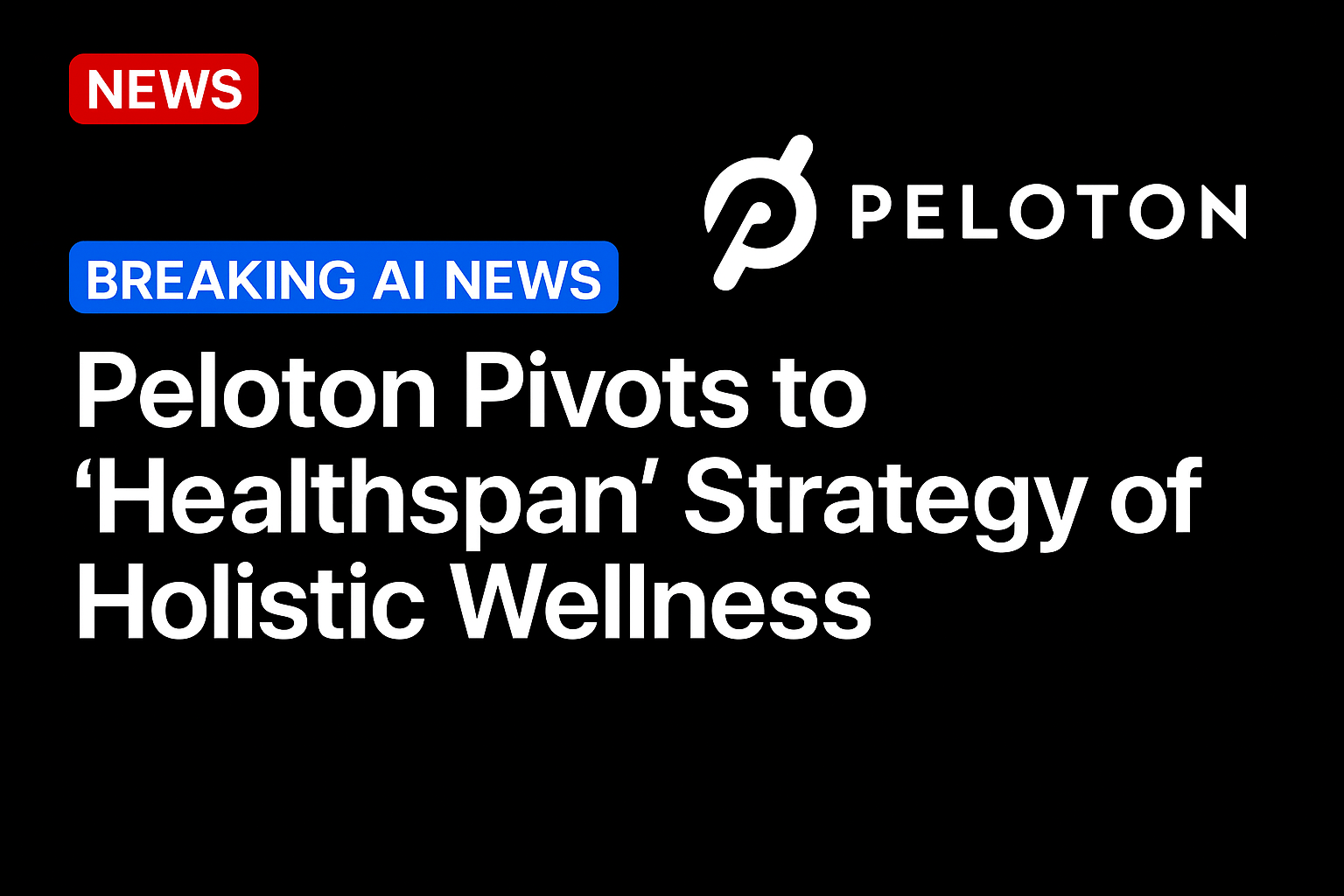Peloton is repositioning itself as a holistic wellness brand, expanding beyond its origins in connected fitness as part of a broader turnaround strategy to return to growth and sustainable profitability.
“We are coming to understand better the importance of strength, stress management, sleep and nutrition to living our best lives,” CEO Peter Stern said Thursday (Aug. 7) during the company’s Q4 earnings call.
“This creates the opportunity — no, more than that, the mandate — for Peloton to evolve from being a cardio fitness partner to become the world’s most trusted wellness partner,” said Stern, a former Apple Fitness+ executive who joined the company in January.
The strategy reflects a shift toward supporting what the company calls “healthspan,” referring to the quality, not just the length, of life. Peloton aims to move from a product-led business to one centered on personalized, tech-enabled wellness coaching across cardio, strength, mental well-being, sleep and eventually nutrition and hydration.
Key to this transformation is the use of advanced technology, including artificial intelligence (AI), to deliver personalized coaching and recommendations. The company says it will tailor fitness and wellness plans to individual needs by integrating data from wearables and other sources. “We will employ advanced technologies like AI to enhance our ability to serve as personalized coaches,” Stern said.
The company is also targeting new distribution channels and audiences as part of its growth plan. It recently opened micro stores in Nashville and Utah, with eight more planned in time for the holiday season. A new resale platform, Peloton Repowered, lets customers buy and sell used equipment nationwide.
Peloton also launched special pricing programs for students, educators, first responders, healthcare workers and military personnel, aiming to broaden accessibility and attract price-sensitive buyers. “These purchases have already made a meaningful impact on first-party retail sales in Q4,” Stern said.
To grow its enterprise customer business, Peloton has merged its Precor unit with Peloton for Business under a new commercial division, aiming to bring connected equipment and coaching into gyms, hotels and other facilities. The Precor brand operates in more than 60 countries and 80,000 locations, and Peloton for Business operates in over 9,000 hotels.
Peloton is also investing in retention and community-building to ensure users stay engaged in the long term. That means using strategies like gamifying a member’s first few weeks to build what Stern calls the “golden behaviors” — frequency, breadth and depth of engagement.
A loyalty rewards program is in development, and the company is rolling out new social features to deepen community ties through Teams and instructor-led engagement.
“We recognize that our members come to us at various stages of their fitness journey, and so a one-size-fits-all approach fits no one,” Stern said.
Saving $100 Million Annually
To support these initiatives, Peloton announced a new effort to save $100 million a year by the end of fiscal 2026. About half of the cost savings have already been achieved through job cuts. The remainder will come from reductions in general and administrative costs, sales and marketing, R&D and stock-based compensation.
For the fourth quarter of fiscal 2025, Peloton posted net income of $21.6 million, or 5 cents per share, compared with a net loss of $30.5 million, or 8 cents per share, a year earlier.
Adjusted EBITDA (earnings before interest, depreciation and amortization) doubled year over year to $140 million. Free cash flow rose to $112 million, up from $26 million a year ago. Total revenue came to $606.9 million, down 6% from the prior year.
The results beat analysts’ consensus expectations: a loss of 5 cents per share on revenue of $579.9 million, according to S&P Global Market Intelligence. Shares of Peloton were up 11% to $7.85 in morning trading.
“The attitudes of younger people are a big reason for the strategy that we announced today,” Stern said. “They’re expanding their definition of what it means to live well, from a narrow focus on cardio as a tool for weight loss toward a more holistic approach that brings together cardio and strength, sleep, stress management and nutrition.”
“Peloton is at a critical juncture in our transformation, a moment to invest intentionally in our future,” Stern added.
Source: https://www.pymnts.com/

